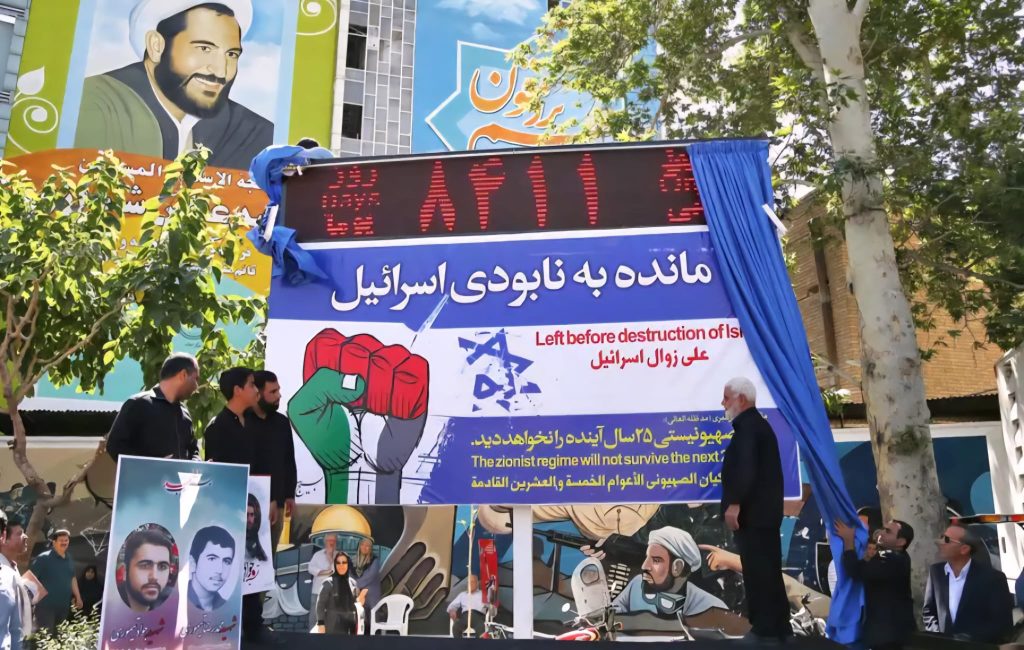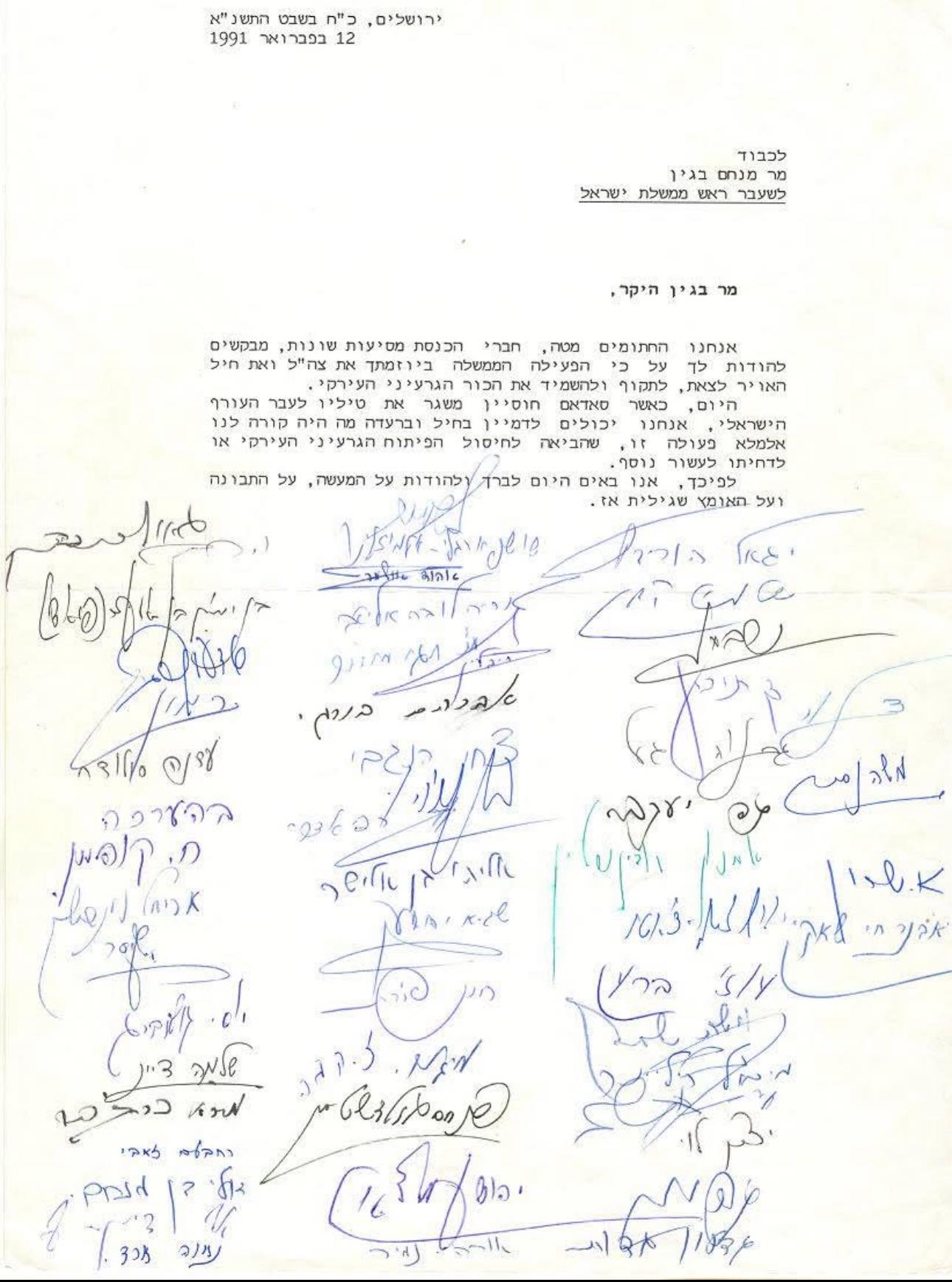
"A great clock hangs above our heads and it's ticking," Menachem Begin concluded the October 1980 cabinet meeting on the proposed strike against Iraq's nuclear reactor.
"If Iraq obtains nuclear weapons, one of two things will happen: either we will be forced to surrender to their demands, or we will risk mass destruction. Such a horror."
Everyone knew which clock the man who lost his family in the Holocaust was referring to.
In his book The Clock, Ka. Tzetnik describes a chilling scene two days before the outbreak of World War II:
A Jewish boy rides his bike down the street in the town of Metropoli, a public clock above him that the townspeople use to set their own watches.
A drunken Polish soldier explains to passersby: "The moment all the Jews are wiped out, the war will be over."
The plot unfolds with the horrors of the Holocaust, the town’s Jews are exterminated. After the liberation from Auschwitz, the only survivor returns and rides again through the empty streets—above him, the same clock still hangs, but it no longer tells time for him. It's moved to a different temporal plane, that of another planet.
That was the clock ticking inside Begin’s heart. The fuse was getting shorter.
The original date for the attack on Iraq was set for May 10, 1981. "The future of the State of Israel rests on your shoulders," the Army Chief of Staff told the excited pilots on the runway at Etzion airbase.
The assumption was that not all would return.
What they didn’t know was that at that very moment, Menachem Begin received a confidential letter from opposition leader Shimon Peres urging him not to proceed with the operation.
Shocked by the information leak, Begin cancelled the mission:
"If Peres knows, the enemy may know too," he said, immediately calling to pull the pilots from the cockpits just a moment before taking off.
But the clock kept ticking—and Begin didn’t give up.
On June 7, Operation Opera launched. The reactor was destroyed.
The world reacted with outrage.
"State-sponsored terrorism," read the Los Angeles Times.
"Unforgivable and shortsighted aggression," declared The New York Times.
The UN condemned it. The U.S. froze military equipment shipments to Israel.
“Those who survived gas chambers will survive condemnation,” Begin told himself.
But criticism came from within as well.
The opposition, led by Peres, accused Begin of launching the mission for political gain ahead of the elections.
“What does this have to do with elections?” the Prime Minister shouted. “I’ve endured agonizing nights, real soul torment. Don’t you see? I picture my two young nephews who were murdered—and every child in Israel. There it was Zyklon B, here it’s radioactive poison.”
—–
Gulf War, 1991.
Israel is under missile attack, gas masks on the streets—the poison returns.
A hundred members of Knesset send a heartfelt letter to retired Menachem Begin:
"Today, as Saddam Hussein fires his missiles at Israel’s civilian heartland, we shudder to imagine what would’ve happened had you not acted. Thank you for the wisdom and courage you showed."
Among the signatories: future Prime Ministers Yitzhak Rabin, Ariel Sharon, and Ehud Olmert.
Shimon Peres refused to sign.
Looking at the letter, I recognized another fresh signature—that of a newly elected Knesset Memeber: Benjamin Netanyahu.

That timer—that's the whole story. Some people see it. Others never lift their eyes.
Operation Protective Edge (Tzuk Eitan), 2014.
Hamas expands its rocket range across the country. The cabinet debates entering Gaza to eliminate the threat—and trembles with fear.
The army presents a classified "Gaza takeover" scenario with a “moderate” estimate: hundreds dead, abductions, and an economic cost of 10 billion shekels.
The presentation is leaked to the media. The plan is canceled.
Nine years later: thousands dead, hundreds kidnapped, a temporary war cost of 300 billion shekels.
Netanyahu’s cabinet didn’t see the clock.
Tunnels were dug, ammunition stockpiled, and the new Nazi waited in homes and fields for our sons and daughters.
Those who watch the hands of the clock know the price of choosing short-term quiet over long-term massacre.
We looked away—and it cost us a second Holocaust in a single day.
We’ve learned the lesson at a terrible price.
A year of bloodshed?
Deaths, destroyed buildings, fear in bomb shelters?
Today it's clear: avoiding Hezbollah's elimination would’ve meant destruction and a death toll equal to a thousand high-rises in Petach Tikva.
A nuclear missile from Iran? Like the Bat Yam massacre, multiplied by ten thousand.
The recent beeper operation and Nasrallah's elimination were a turning point.
Operation "Like a Lion" is the full-speed gallop after turning around.
In other words—we’ve realized that delayed checks eventually get cashed, and we pay interest on them.
We came to our senses just in time.
This time, Netanyahu signs the rescue of the Jewish people from annihilation.
He’s the head—he’s responsible.
And here’s another clock ticking above us:
We have never made it past the 80-year mark as an independent nation.
David and Solomon didn’t make it to 80 before the kingdom split in two.
The Hasmoneans ruled about 77 years before the Second Temple was destroyed.
It always collapsed due to internal rifts—and enemies outside who took advantage.
It’s possible that these recent days mark the moment we changed the course of our national destiny, narrowly avoiding the fall of the Third Jewish house at the age of 77.
At the last moment, the Jewish people chose strength, unity, and long-term vision—over weakness, division, and short-term comfort.
We all felt it this week: history is turning a page, and you grip it so you’re not blown away by the wind.
We let go of old habits in one moment—and whoever doesn’t internalize this will be stuck in the past. The one from last week.
In Palestine Square, Iran, there is a giant clock counting down to Israel’s destruction.
If the boy from Tzetnik’s story, and Menachem Begin, are watching from above—
tell them we’ve learned.
This time, the Jews acted in time.